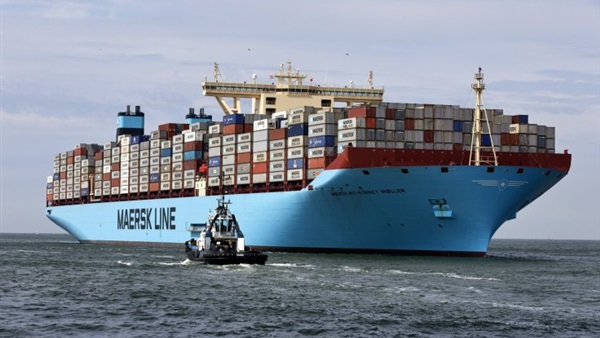
In a rare occurrence, a Maersk tanker refueled a Military Sealift Command oiler while at sea during an exercise in international waters off the coast of Japan earlier this month, the U.S. Navy said Wednesday.
The exercise marks just the second time in the last 15 years that a U.S. Navy tanker conducted fueling operations with a commercial vessel at sea.
The operation, part of a four-day training event, took place off Sasebo, Japan on October 22nd and involved the USNS Tippecanoe (T-AOP-99) and the U.S.-flagged tanker Maersk Peary, which has been contracted to MSC.
“Typically MSC oilers like Tippecanoe are required to dock pier-side at one of the Navy’s Defense Fuel Support Points,” said Navy Captain Philippe Grandjean, assistant chief of staff for logistics for the COMLOG WESTPAC. “The capability exercised during this training evolution pushes the Navy’s ability to refuel at-sea via commercial tankers and furthers the vision of a distributed, agile logistics concept.”
The Navy explains that under certain circumstances, it wants to ensure that it has the flexibility to provide the best assets as possible – even if that means turning to commercial sector for fuel. After all the U.S. 7th fleet, which operates in the Indo-Asia-Pacific region, covers an area of 48 million square miles – that’s almost 13 times the size of the continental United States.
“Our replenishment oiler crews must be proficient in receiving fuel from commercial tankers in case, for some reason – a natural disaster for example – a vital asset cannot make it into port to refuel,” explained Cmdr. Michael Wilson, deputy assistant chief of staff for logistics for COMLOG WESTPAC. “These operations provide MSC with flexibility in providing operational support to the 7th Fleet in any situation.”
Maersk Peary is under a long-term charter to MSC and is one of four MSC charters that have been specially outfitted to conduct consolidated cargo capability operations, including refueling, with fleet replenishment oilers.
Capt. Wilson added the end goal is to see this sort of training taking place throughout the fleet and on as many tankers as possible.
Copyright Ships & Ports Ltd. Permission to use quotations from this article is granted subject to appropriate credit given to www.shipsandports.com.ng as the source.

